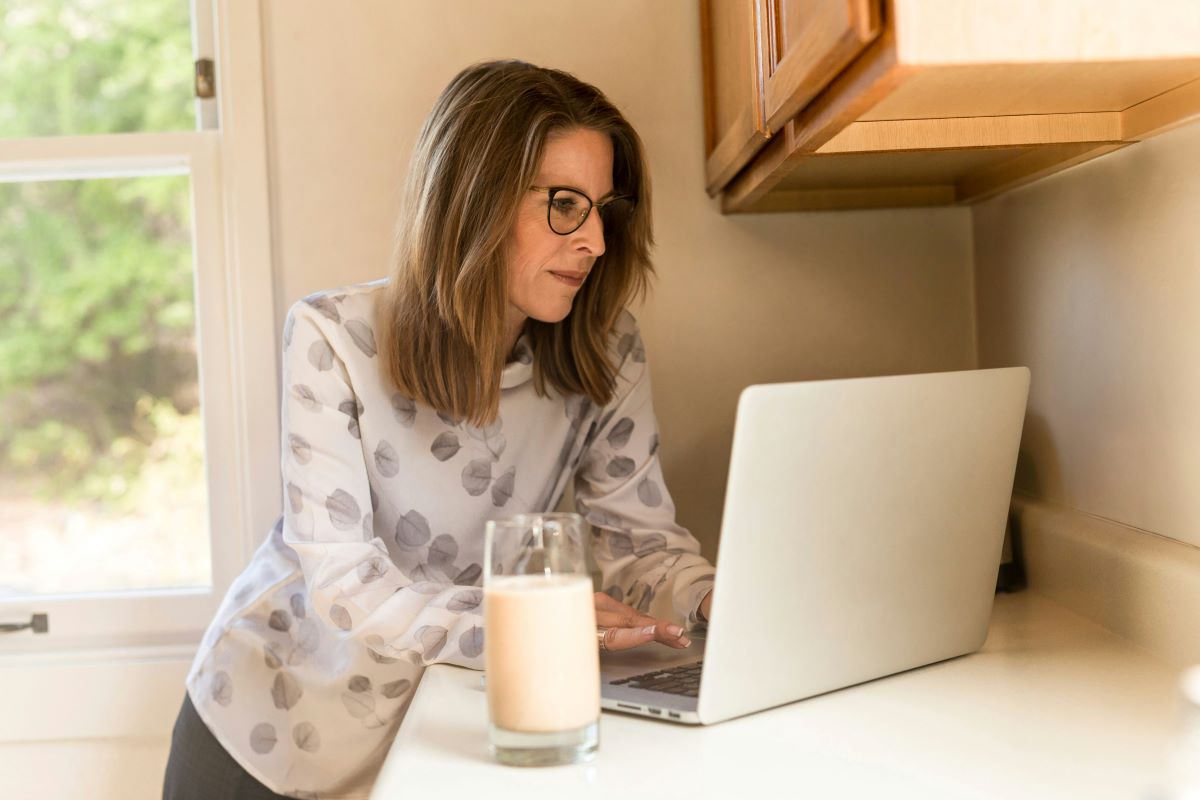“Practicing self-love means learning how to trust ourselves, to treat ourselves with respect, and to be kind and affectionate to ourselves” – Brene Brown
Do you believe that being a “good mother” means that you should always prioritize your children’s needs over your own? Do you think that taking time for yourself means you’re neglecting your family, friends and your responsibilities? This is certainly what I believed for a long time. But, as a mom navigating the ups and downs of life, I’ve come to realize the significance and necessity of self-love. In this post, we explore some of the reasons why we struggle with loving ourselves and dive into five reasons why self-love is essential. Finally, I share three of my favorite ways to be self-loving to support you in starting or strengthening your practice of self-love today.
“It’s not possible to achieve long-term health or happiness if you hate yourself” – Rangan Chatterjee.

Why do we struggle with self-love
“Self-love is not perfection, nor is it always being happy. It is not based on your achievements and external measurements of success. It is not rooted in shame-based criticism or fear.” – Megan Logan.
As women, we often find ourselves taking care of our children, our parents, our friends, our partners. We extend love towards others easily, yet we often struggle to make space and time to take care of ourselves. Here are some reasons why many of us find it hard (even impossible) to be loving and compassionate with ourselves:

1. Belief that self-love is selfish
Societal norms and cultural expectations often reinforce the idea that moms should be self-sacrificing and continuously giving. This narrative makes it difficult for moms to prioritize self-care and self-compassion without feeling guilt or selfishness.
2. Conditioned for people-pleasing
Many of us have come to internalize negative self-talk because of the conditioning we got as kids where love and approval were conditional upon meeting certain expectations. This translates into adulthood where we think that pleasing other people and doing what they ask of us makes us worthy of love. People-pleasers often prioritize maintaining harmony in relationships over expressing their own needs or desires. The discomfort associated with conflict may lead to sacrificing their well-being for the sake of harmony.
3. Defense from criticism
Most of us have been criticized at some point for the way we do something or how well we do it. We internalize the criticism we receive from others and use it against ourselves and our inner critic expands. As a defense mechanism, our inner voice criticizes us first before someone else has the opportunity. Multiple times a day we talk to ourselves in a way that we’d never dream of doing with our friends, family, colleagues and anyone else. It’s easy to think it doesn’t matter when we’re negative with ourselves because no-one can hear and it passes. However, this internal criticism increases our stress, self-doubt and feelings of inadequacy.
4. Pressure for perfectionism
Many of us are weighed down by perfectionism that has been our conditioning since childhood. As moms, we may feel societal or personal expectations to have it all together. The pressure to be the perfect parent, spouse, and professional can lead to self-criticism and perfectionism, making it difficult to be compassionate towards our mistakes and imperfections. Gertrude Stein called perfectionism an internalized oppression. When perfectionism and external measurements drive self-worth, self-love is stifled.
5. Lack of support systems
For many of us, it’s challenging to practice self-love if we lack a supportive social network. Feeling isolated or unsupported can exacerbate feelings of inadequacy and hinder the development of self-love habits and practices.
Why self-love is essential
“You have been criticizing yourself for years, and it hasn’t worked. Try approving of yourself and see what happens.” – Louise Hay.
Now that we’ve explored some of the blocks we face in being self-loving, let’s look at why self-love is essential. To begin, we’ve experienced the impact of our love towards the people we care about. Our love can have profound positive effects on their emotional well-being, happiness, increased self-esteem and resilience to name a few. Now, take a minute to imagine how you would feel if you let go of self-criticism and the fear of not being good enough. You’re starting to feel the benefits of self-love. Here are some ways self-love can change your life:

1. Encourages and supports self-care
Moms often find themselves at the bottom of their priority list. Self-love plants the seed that develops into new healthy habits. We prioritize self-care without guilt, recognizing that taking care of ourselves is essential for our overall well-being. Self-love builds self-compassion and contributes to mental well-being by reducing self-criticism and fostering a kinder, more understanding inner dialogue. In addition, a 2020 study found that self-love has positive effects on our immune function, blood sugar and aging. Ultimately, self-love improves our physical, mental and emotional health.

2. Increases our capacity to love others
Self-love is the foundation for developing and maintaining healthy, positive relationships with others. By nurturing ourselves, we become better equipped to nurture those around us. When we cultivate a strong sense of self-love, it positively influences our interactions, empathy, and ability to connect with others. A few ways self-love contributes to being more loving towards others include:
- Helps build emotional resilience, allowing us to better manage our own emotions
- Contributes to emotional maturity and a greater capacity for compassion and empathy
- Empowers us to set and maintain healthy boundaries promoting respectful and mutually beneficial relationships
3. Helps us overcome people-pleasing
Embracing self-love empowers us to break free from the cycle of people-pleasing. By nurturing a connection with our own needs and values, we develop a stronger sense of self-worth and confidence. Self-love enables setting healthy boundaries, prioritizing well-being, and communicating assertively. This fosters more authentic and fulfilling relationships with our children, partners, and others. Therefore, when we prioritize self-love, we can meet the needs of our families and others while still honoring our own.
4. Builds self-compassion and increased resilience
Self-love is the foundation of building self-compassion and increasing resilience. When we embrace self-love, we develop a compassionate and nurturing relationship with ourselves, recognizing our intrinsic worth regardless of imperfections or setbacks. This self-compassion acts as a buffer during challenging times, fostering an understanding and accepting attitude towards one’s own struggles. When we cultivate self-love, we learn to treat ourselves with kindness, allowing for a more forgiving and positive internal dialogue. This shift strengthens our resilience and empowers us to face adversity with a greater sense of self-assurance.

5. Frees us to embrace who we are
“Self-love is the fuel that allows an individual to reach their full potential, and is filled with compassion, grace, and gentleness.” – Megan Logan
Eventually, self-love frees us from the stories we’ve been telling ourselves (many of which we got from others) that are limiting us. It frees us from the expectations that others have on us that aren’t aligned with our values, strengths and purpose. Self-love is rooted in knowing and nurturing internal strengths and personal values while giving us the space to make mistakes to grow and learn. Ultimately, self-love opens the door to a joyous, fulfilling life.
Ways to Practice Self-Love
Now let’s look at some ways to put self-love into practice. I’ve included three of my favorite ways to get started. When we learn to treat ourselves with love, respect and compassion, the more we remind our brains that we are enough. Gradually, our inner voice starts to quiet and fade away.
1. Choose Again Method
This 3-step method is taught by Gabby Bernstein. This method shifts us out of negative thoughts so we make a choice to feel better. This redirects your energy and slows down the flow of negativity.
Step 1: Notice the thought
When you’re stuck in negativity or fear, consciously step back and notice that the thought and energy are out of alignment with joy.
Step 2: Forgive the thought
Forgive yourself for being misaligned and celebrate your desire to shift. Thank your negative feelings and thoughts for showing you what you don’t want and revealing what you do.
Step 3: Choose Again
Ask yourself “what is the best-feeling thought I can find right now?” Choosing a more loving thought shifts your emotions and changes your energy.

2. Make Time For You and Be Present
Most likely, your day is jam-packed with no space for one more thing. So you have to plan time for self-care because no-one else is going to do it for you. I added some time to my morning and night routines. Some days I can only manage 10 minutes but that’s enough to boost me. The key is making the time count by practicing mindfulness and staying present. Small, self-nurturing opportunities also happen throughout the day – a hot cup of tea or coffee, the feel of the sun on your face, a warm shower, a favorite song. Give yourself 5 minutes and show up fully, staying present and aware. Over time, you will find more ways and more opportunities.
If you’re struggling with having the energy to get everything on your list done, read my post How to Have Energy All Day. You can also download a FREE tracker which includes 12 ways to be vibrant all day every day especially designed for moms struggling to do it all.

3. Write Yourself a Love Letter
Take a blank piece of paper, your journal or a google doc and start by writing down some of the qualities you love about yourself. This can be in any form that’s easy for you – it can be just a list of five qualities you like about yourself and as simple as “I am kind”. You can expand on it by writing what you have achieved in life despite problems that you’ve faced. The key is to write with a tone of kindness, compassion and forgiveness.
Wrap-up
So there you have it! Self-love is not a luxury but an essential, foundational part of our journey to lasting health and happiness. It is the fuel that allows us to reach our highest potential, and a life that is filled with compassion, grace, and gentleness. However, I recognize that self-love can be a challenging topic for many. Have you already tried to practice self-love but are struggling? I’m here to help! You can schedule a FREE coaching session tailored to your unique challenges and goals. Let’s work together to uncover personalized strategies for sustainable lifestyle changes.
YOU have the power to take the steps to mindfully transform your wellness on your personal journey.
The content provided in this post is for informational purposes only and is not intended to be a substitute for professional medical advice, diagnosis, or treatment. Always seek the advice of your physician or other qualified health provider with any questions you may have regarding a medical condition. Never disregard professional medical advice or delay in seeking it because of something you have read in this post.














+ Show / Hide Comments
Share to: